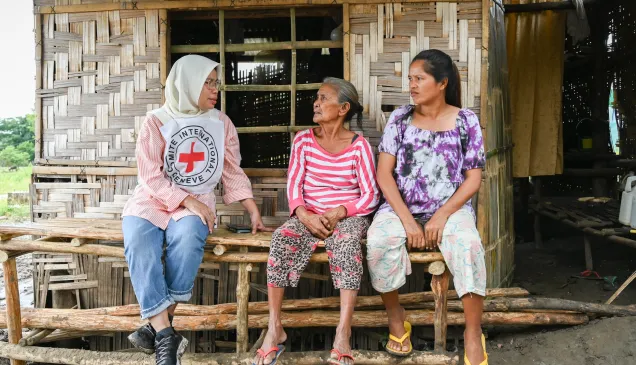Geneva (ICRC) – Speaking at the opening of the Meeting of States party to the 2008 Convention on Cluster Munitions, vice-president of the International Committee of the Red Cross (ICRC), Gilles Carbonnier, urged the international community to continue to reinforce the stigma against these unacceptable weapons.
"The past 10 years have seen major progress in clearing cluster munition remnants , bringing improvements to the lives of people and communities affected by these weapons," said Gilles Carbonnier. "More than 400 km of contaminated land has been cleared of cluster munition remnants and States Parties have destroyed the vast majority of their declared stockpiles," he added.
Other progress has included:
• Growing acceptance of the norm banning cluster munitions: today, 103 States are party to the Convention and a further 17 are signatories.
• States Parties have destroyed the vast majority of their declared stockpiles, amounting to more than 175 million sub-munitions.
• 18 countries (of which 17 are States Parties)that formerly manufactured cluster munitions have ceased doing so.
However, vice-president Carbonnier noted that much work remains to be done and progress cannot be taken for granted:
"The rise in the number of reported cluster munition casualties – mostly civilian – in the past five years is a matter of grave concern to all of us in the Convention community," said Carbonnier. "The death and injury of hundreds of civilians underscores the urgency with which we need to achieve universal implementation of the Convention's norms."
"The Convention's promise to civilians that they will no longer face the threat to their lives, limbs and livelihoods posed by cluster munitions will only be fulfilled when the use of these weapons has ceased, when stockpiles are eliminated, when contaminated areas have been cleared and when victims have been helped to rebuild their lives," said Carbonnier.
The ICRC calls on all States that have not yet done so to join the Convention on Cluster Munitions and faithfully implement its humanitarian agenda.
For more information, please contact:
Matt Clancy, ICRC Geneva, +41 79 574 15 54



